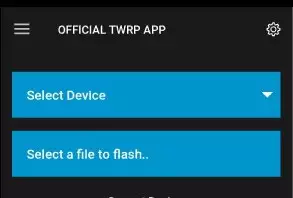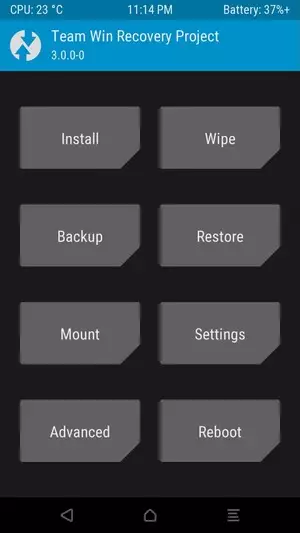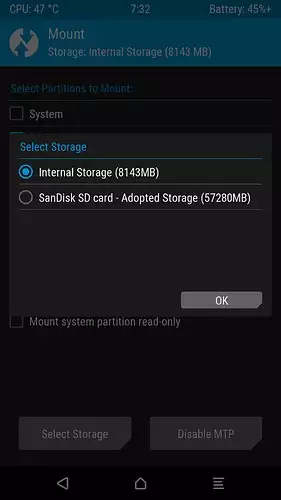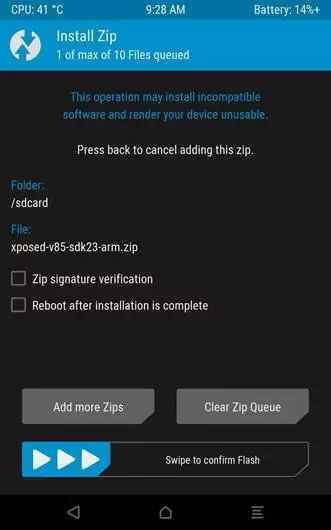Flash firmware on Mpie MG16
Mobiles >> Mpie >> Mpie MG16| Specifications | Reviews | Secret codes |
| Unlock phone | Root phone |
| Backup | Flash Firmware | Screenshot |
How to flash Mpie MG16?
Why reinstall the firmware?
Errors in the Android OS start to appear regularly.
Some applications do not open, reinstalling which does not lead to a positive result.
Some programs from the Play Market do not start.
The phone restarts or shuts down randomly.
The phone began to work slowly.
You want to update the firmware, as it does not suit you in terms of functionality.
Where can I find the firmware?
On the official website of the phone manufacturer.
On specialized resources where users post custom or official OS.
What should be done before installing the firmware?
Create a backup copy of user data, contacts and photos and transfer it to your computer.
Insert your SD card into your phone. It must have enough memory to fit the firmware.
Find information about your smartphone model.
Fully charge your phone battery.
Find and download the archive with Firmware. Place it on the SD card.
Installing TWRP Recovery
Install the Official TWRP App from the Play Store on your phone.
When you start the application for the first time, you must agree to install a new firmware and all the risks associated with this, as well as agree to grant the application Superuser rights and click the 'OK' button.
On the next screen, select 'TWRP FLASH' and give the application root rights.

On the main screen of the application, click 'Select Device', and find your phone model.
After selecting a phone, the application will direct the user to a web page to download the modified recovery environment image file. Download the proposed *.img file.
After downloading the image file, go to the main screen of the Official TWRP App and press the 'Select a file to flash' button. Select the file downloaded in the previous step.
Press the 'FLASH TO RECOVERY' button and confirm your choice.
When the message 'Flash Completed Succsessfuly!' appears on the screen. Click the 'OK' button. The TWRP installation procedure is now complete.
Copy the required files to the SD card. Using a PC or laptop card reader, it will be much faster.
Insert a memory card into your phone.
To reboot into recovery, you need to enter the menu accessible by pressing the button with three stripes in the upper left corner of the main screen of the application. Select the 'Reboot' item, and then click on the 'REBOOT RECOVERY' button. The phone will reboot into the recovery environment automatically..
Firmware via TWRP

Before flashing, it is recommended to clear the 'Cache' and 'Data' sections. This will delete all user data from the device, but avoid a wide range of software errors and other problems. You must press 'WIPE' on the main screen.
Now you can start flashing. Click the 'Install' button.

The file selection screen is displayed. At the very top is the 'Storage' button, select the location where the firmware file is located.
Select the location where you copied the files..

Select the firmware file and click on it. A screen opens with a warning about possible negative consequences, you need to check the item 'Zip signature verification', which will avoid using corrupted files when writing to the phone's memory sections.
The procedure for writing files to the phone's memory will begin, accompanied by logging and filling in the progress bar.
When the procedure for installing the firmware is completed, the message 'Successful' appears on the screen.
Summary: Chip: MediaTek MT6580; Process technology: 28 nm; CPU: ARM Cortex-A7; CPU bits: 32 bit; Instruction set: ARMv7; Level 1 cache memory (L1): 32 KB + 32 KB; Level 2 cache memory (L2): 512 KB; CPU cores: 4; CPU frequency: 1300 MHz; GPU: ARM Mali-400 MP2; GPU cores: 2; RAM capacity: 512 MB; RAM channels: Single channel; RAM frequency: 533 MHz; Operating system (OS): Android 6.0 Marshmallow; SIM card type: Micro-SIM (3FF - third form factor, since 2003, 15.00 x 12.00 x 0.76 mm)Mini-SIM (2FF - second form factor, since late 1990s, 25.00 x 15.00 x 0.76 mm); Number of SIM cards: 2; Features: Dual SIM stand-by (Both cards are active. When one is busy, the other is not active); Type/t ...
Comments, questions and answers on the flash firmware Mpie MG16
Ask a question about Mpie MG16



